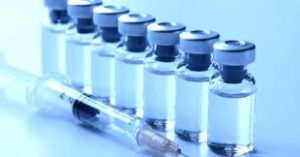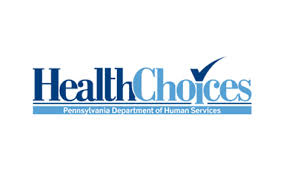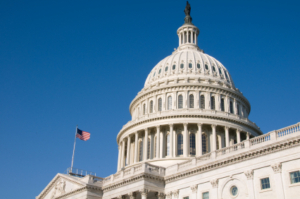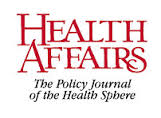PA Health Policy Update for the Week of August 16-20
The following is an update of selected state health policy developments in Pennsylvania for the week of August 16-20, 2021. (Some of the language used below is taken directly from state documents.)
The Wolf Administration
 The Wolf administration has directed vaccine providers to support COVID-19 vaccination clinics and has introduced a free COVID-19 testing program for schools across the state. Learn more from this news release and from a Department of Health order in support of the governor’s directive.
The Wolf administration has directed vaccine providers to support COVID-19 vaccination clinics and has introduced a free COVID-19 testing program for schools across the state. Learn more from this news release and from a Department of Health order in support of the governor’s directive.
General Assembly
The Senate Aging & Youth Committee held a hearing this week to examine proposed revisions of the state’s Child Protective Services Law. Testimony presented to the committee and a video transcript may be found here.
Next week the Senate Health & Human Services and Aging & Youth committees will hold a joint hearing with the House Aging & Older Adult Services and Human Services committees to “discuss the Department of Human Services’ intent to contract with Maximus as its independent enrollment broker (IEB) and the impact this will have on seniors and adults with disabilities.” The hearing will take place on Monday, August 23 at 12:30 p.m. Livestream the hearing here.
Department of Health
- Effective August 18, the Department of Health’s order regarding daily hospital data reporting through the Corvena system is amended to add new data fields related to the vaccination status of hospital patients. View details in the amended order here.
- The Department of Health has issued an advisory to health care facilities and providers caring for people whose immune systems are moderately to severely compromised about the CDC’s recommendation that such individuals may benefit from an additional dose of mRNA COVID-19 vaccine to ensure they have enough protection against COVID-19. Find the advisory here.
- The Department of Health has informed health care facilities and providers of the CDC’s recommendation that pregnant people should be vaccinated against COVID-19. Learn more from a department health advisory.
- In July the Department of Health’s nursing home surveyors conducted 466 inspections, including 289 complaint investigations, of 329 separate nursing homes. Of these inspections, 30 were COVID-19-specific investigations. There were five new sanctions finalized against nursing care facilities in the past month resulting in a total of $40,150 in fines. Learn more from this department news release.
 Department of Human Services
Department of Human Services
- DHS has added September dates to its calendar of MA remittance advice delivery dates. Find the updated list here.
- DHS has published a Medical Assistance Bulletin announcing changes in the Medical Assistance program fee schedule, including changes resulting from the implementation of the 2021 Healthcare Common Procedure Coding System procedure codes updates. In addition, DHS also is adding other procedure codes and making changes to procedure codes currently in the MA program fee schedule, including fee adjustments, as well as setting limitations and prior authorization requirements. These changes are effective for dates of service on and after August 23, 2021. Find this Medical Assistance Bulletin here.
- Officials from DHS and the Department of Health have introduced the PA Health Equity Analysis Tool (HEAT), an interactive map that synthesizes Medical Assistance and population health data to show opportunities for intervention to promote better health and promote health equity. PA HEAT provides state, county, zip code, and census track-level data on a number of population health measures and social determinants of health and how they affect local communities and Pennsylvania as a whole. Results can also be displayed according to environmental justice areas, which are calculated based on concentrations of people living at or below the federal poverty line, based on resident demographics. Learn more about PA HEAT from this DHS announcement and from the PA HEAT web site.
- DHS has released quarterly licensing and enforcement activity data for its five licensing offices that oversee providers of long-term care, child care, behavioral health care, day activity programs, and residential care for individuals with intellectual disabilities and autism. Find a summary of the report in this DHS announcement.
- A notice in the Pennsylvania Bulletin announces that documents are now available on DHS’s web site about proposed annual case-mix per diem rates for state fiscal year 2021-2022 for non-public and county nursing facilities and the budget adjustment factor that will be applied to non-public and county nursing facilities. Find the Pennsylvania Bulletin notice here and the DHS web site with the nursing facility rates here.
COVID-19: By the Number
- The daily number of new COVID-19 cases continued to rise during the past week. The 3451 new cases reported on Thursday was the highest single-day total since April 30.
- The number of deaths, while slightly higher during the past week, remains far lower than when comparable numbers of new cases were being reported in the spring.
- For the week of August 6-12 the state’s overall COVID-19 test positivity rate was 6.0 percent, up from 5.4 percent last week and the fifth consecutive week with an increase.
- In Pennsylvania, only Sullivan County is classified as having a low rate of COVID-19 transmission this week; three counties – Forest, Tioga, and Warren – have a moderate rate of transmission; 25 counties are currently experiencing a substantial rate of transmission; and 38 currently show a high rate of transmission, including nine of the ten most populous counties in the state: Philadelphia, Allegheny, Delaware, Bucks, Montgomery, York, Lehigh, Berks, and Lancaster.
- The number of Pennsylvanians hospitalized because of COVID-19 has more than doubled since the beginning of the month; the number on ventilators because of the virus is two-and-half times greater than it was at the beginning of the month; and the number in hospital intensive care units has more than tripled since the beginning of the month.
- According to the state’s COVID-19 Dashboard, only 57 pediatric ICU beds in the state are not currently occupied. That figure represents 14.7 percent of the total of such beds in Pennsylvania.
- According to the state’s revised figures, 64.7 percent of Pennsylvanians 18 years of age and older are now fully vaccinated – 5.86 million people – up from 62.8 percent last week. Only 54,000 Pennsylvanians completed a vaccine regimen in the past week and only 134,000 have done so since the beginning of August.
 Around the State
Around the State
- Governor Wolf is “…reinstating a mask mandate for all state employees and contracted staff working under his jurisdiction regardless of their vaccination status, starting on Monday,” PennLive reports.
- A shortage of nurses in the Philadelphia area has led hospitals to offer signing and retention bonuses of as much as $20,000 to experienced nurses. The Philadelphia Inquirer offers the details.
- “Overburdened health care systems from Texas to Florida are pleading with Western Pennsylvania hospitals to take on transfer patients at record-high rates as beds and ventilators reach capacity in covid-19 hot spots across the country,” the Pittsburgh Tribune-Review reports.
- “While nearly a third of deer tested in Pennsylvania carried antibodies indicating they were exposed to COVID-19, the Pennsylvania Game Commission noted there is no evidence that deer can transmit the virus to humans and advised hunters to ‘take usual precautions when handling their harvests.’” The Bradford Era explains what this means.
- WTAE TV in Pittsburgh has published on its web site an interactive map showing the COVID-19 transmission rate for every county in the state. Find the map here (scroll down to see it).
- The Wolf administration plans to engage at least 100 people to perform COVID-19 contact tracing, Spotlight PA reports.
Stakeholder Event
The Department of Health’s Health Research Advisory Committee will hold a public meeting on Monday, August 23, from 10:00 a.m. to 11:30 a.m. The meeting will be held virtually via Microsoft Teams at +1 267-332-8737 with Conference ID: 545 844 262#. The purpose of the meeting is to review the work of the committee and plan future health research priorities. Find the meeting agenda here.
 The document, The State of Our Health: A Statewide Health Assessment of Pennsylvania, generally describes the health status of Pennsylvanians today, addresses current health care challenges the state faces, and identifies areas for improvement.
The document, The State of Our Health: A Statewide Health Assessment of Pennsylvania, generally describes the health status of Pennsylvanians today, addresses current health care challenges the state faces, and identifies areas for improvement. United Healthcare, with 57,000 Medicaid members in the city, has placed six homeless members with multiple health problems into apartments in the city – it plans to add four more – and is spending between $1200 and $1800 a month on rent and wrapround services. Its theory: with one percent of the population accounting for 22 percent of annual health care spending nation-wide, helping some of that one percent could improve lives while saving a great deal of money.
United Healthcare, with 57,000 Medicaid members in the city, has placed six homeless members with multiple health problems into apartments in the city – it plans to add four more – and is spending between $1200 and $1800 a month on rent and wrapround services. Its theory: with one percent of the population accounting for 22 percent of annual health care spending nation-wide, helping some of that one percent could improve lives while saving a great deal of money. According to a legislative summary prepared by one of the bipartisan bill’s sponsors,
According to a legislative summary prepared by one of the bipartisan bill’s sponsors, According to the post, social determinants of health – income, education, decent housing, access to food, and more – significantly influence the health and well-being of individuals – including low-income individuals who have adequate access to quality health care. Medicaid, the post maintains, can play a major role in addressing social determinants of health.
According to the post, social determinants of health – income, education, decent housing, access to food, and more – significantly influence the health and well-being of individuals – including low-income individuals who have adequate access to quality health care. Medicaid, the post maintains, can play a major role in addressing social determinants of health. As described in the Centers for Medicare & Medicaid Services’ “final call letter’ for 2020,
As described in the Centers for Medicare & Medicaid Services’ “final call letter’ for 2020, The two are working together to develop new ICD-10 codes that would take into consideration social determinants of health such as housing and food security, access to transportation, and ability to pay for medicine.
The two are working together to develop new ICD-10 codes that would take into consideration social determinants of health such as housing and food security, access to transportation, and ability to pay for medicine. The report, from the Institute for Medicaid Innovation, focuses on how state Medicaid programs, through alternative payment models and especially through managed care organizations, have implemented new programs designed to address social determinants of health such as inadequate social supports and housing, food insecurity, lack of transportation, and others. It also highlights federal regulations that facilitate the implementation of new ways to address social determinants of health and presents brief case studies in which states, state Medicaid programs, and Medicaid managed care organizations tackle social determinants of health.
The report, from the Institute for Medicaid Innovation, focuses on how state Medicaid programs, through alternative payment models and especially through managed care organizations, have implemented new programs designed to address social determinants of health such as inadequate social supports and housing, food insecurity, lack of transportation, and others. It also highlights federal regulations that facilitate the implementation of new ways to address social determinants of health and presents brief case studies in which states, state Medicaid programs, and Medicaid managed care organizations tackle social determinants of health.